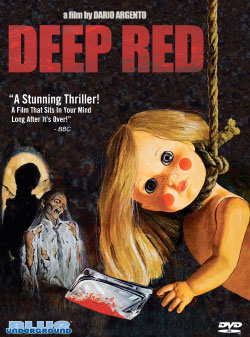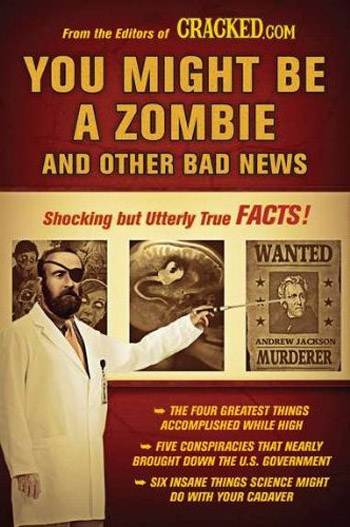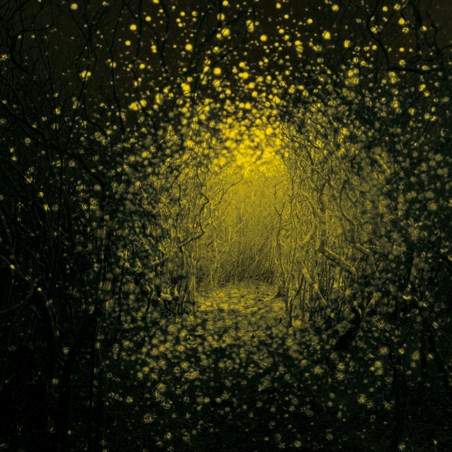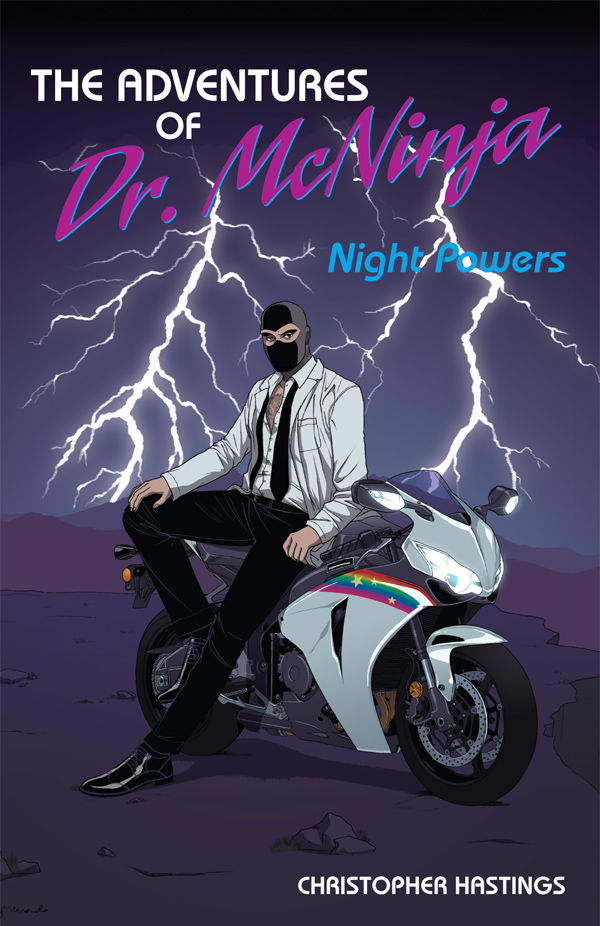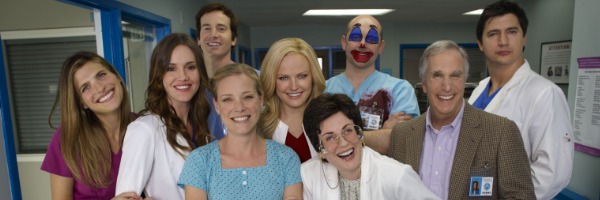Entries in Australia (2)
The Return of Captain Invincible
 Rob Dean On
Rob Dean On  Thursday, June 16, 2011 at 12:30PM
Thursday, June 16, 2011 at 12:30PM Rob Dean examines the overlooked, unappreciated or unfairly maligned movies. Sometimes these films haven't been seen by anyone, and sometimes they've been seen by everyone - who loathed them. This is Missing Reels.
 What I want to bring back to superheroes with this project is a sense of play. Things have gotten so dreary. The heroes have gotten so ugly that even their muscles have muscles.
What I want to bring back to superheroes with this project is a sense of play. Things have gotten so dreary. The heroes have gotten so ugly that even their muscles have muscles.
- Frank Miller
Ignorance is bliss. Sure, it's "better" to know the truth - but it's not always a good feeling. Here's an example: you know the song "Brown Eyed Girl" by Van Morrison? It's a sweet summer song of days gone by, right? It's about anal sex. Just listen to the lyrics: "Behind the stadium...down in the hollow...playing a new game..." Clearly it's about that special bond between a man and the first girl who lets him do it in the butt.
Or maybe it's not. This is a brilliant and hilarious thought exercise put forth by Shannon Wheeler in Too Much Coffee Man: now that you've just been exposed to this piece of information - you will always associate "Brown Eyed Girl" with butt sex. Even though things may not be true, certain bits of knowledge can never be unlearned.
Today's movie isn't about butt sex (not that I noticed, anyways) but it is about the fallacy of nostalgia. It centers on that lie put forth by regressives that, at one point in the past, there were "golden days." Don't get me wrong - there were definitely years for America that were objectively better than this current age of horrible new diseases, rampant pollution, erratic natural disasters, catastrophic economic woes. But to say that "times were better" is to imply a giant asterisk: yes, times were better if you were a white American man above a certain level of wealth. The Post-World War II era was a prosperous one for the US - but mainly due to the fact that every other country had been utterly decimated by war, bombing campaigns and more war. And sure, maybe the truthiness of growing up in the 50s was that everything felt better - but that's because people weren't informed about all the various levels of corruption in politics, pollution in the environment, exploitation of other countries, carcinogens in household items, etc.
Times were better - because most people didn't know any better. The deluge of information brought along the weariness of cynicism - but also the responsibility of knowledge. Armed with knowing as many facts about a situation as possible, the hope is that people can make informed decisions that are based on rational deliberation and not ignorance or fear. Of course, that doesn't always pan out, but the theory is sound.
But what does this all have to do with an Australian superhero parody from 1984? The Return of Captain Invincible is about an American, patriotic costumed do-gooder who went from being the beloved hero of a nation to becoming a forgotten footnote delegated to the alleyways of Australia. Alan Arkin plays the recovering alcoholic Captain Invincible, a man formerly ensconced in the flag but now lying in a puddle of his own filth. Oh...and it's a musical.
The Horseman
 Rob Dean On
Rob Dean On  Thursday, June 2, 2011 at 12:30PM
Thursday, June 2, 2011 at 12:30PM Rob Dean examines the overlooked, unappreciated or unfairly maligned movies. Sometimes these films haven't been seen by anyone, and sometimes they've been seen by everyone - who loathed them. This is Missing Reels.

Revenge is a confession of pain.
- Latin Proverb
In the 21st century, critics have lent more credence to revenge movies - positing that they're cathartic expressions for audience members who are unable to visit their anger on the various trespassers they believe worthy of such treatment. The driving force behind this sudden renewed bloodthirst was usually identified as the amorphous, generalized anger people felt in the wake of the terror attacks and subsequent wars beginning in 2001.
There was no clear cut "Us" vs. "Them," the definitions were more subtle and thus harder to picture and more difficult to envision fitting punishment. In essay after blog posting, critics posited that since the enemy was more an ill-defined idea ("Terror"), Americans (usually the driving force behind movie trends) needed villains with faces and, more importantly, needed to see these villains pay.
Personally? I think that's a load of shit. Not that Post-9/11 films weren't full of cathartic escapism where Liam Neeson or Denzel Washington slapped people around, or Jack Bauer used "enhanced interrogation methods" on his own brother. Of course that was catering to a collective unconscious need for such vindication, usually wrought in a very visceral and primal fashion. But I don't think that 9/11 is the root cause for revenge films' popularity.
The Theatre of Vengeance has been popular in the arts since the very beginning. Theatre of Vengeance is beyond international borders and cultural mores, pervading every medium and thriving in societies throughout history. The schadenfreude experienced by watching great kings undone by their own stupidity and hubris on stage (Shakespeare, Aristophanes, Sophocles, Goethe); the giddiness of readers exciting at the tales of a wronged man or men targeting their antagonists and ripping them asunder (The Count of Monte Cristo, The Iliad, Richard Stark's The Hunter); and the past century has brought us many classic tales of revenge writ large on the silver screen from Cape Fear to Get Carter to Enter the Dragon to Django to Kill Bill to Oldboy to today's entry, 2008's The Horseman. The tale as old as time isn't star-crossed lovers - it's the journey that begins with digging two graves and ends with both of them filled.



